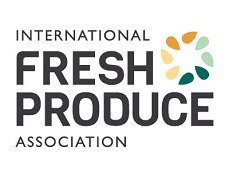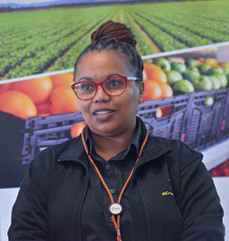 In honour of World Food Safety Day on 7 June, the International Fresh Produce Association's Southern Africa chapter addressed this topic, new to them, but germane to recent incidents in which children have been poisoned, often by processed snacks and drinks sold at school tuck shops or just outside the school gates.
In honour of World Food Safety Day on 7 June, the International Fresh Produce Association's Southern Africa chapter addressed this topic, new to them, but germane to recent incidents in which children have been poisoned, often by processed snacks and drinks sold at school tuck shops or just outside the school gates.
Suenita Mackay, a trained microbiologist and food safety and quality specialist at MiChem Dynamics (a food safety training, testing and consulting firm) delivered a spirited address at the tri-annual IFPA Fresh Solutions earlier this week.
Mackay believes there have long been hundreds of companies operating below the glare of institutional oversight, for instance packing potato chips on the floor or rinsing bottles with water from fire hydrants before refilling them for resale. "It is my belief that it's not increasing, we're only now becoming aware of it because of social media," she says. "I feel it has always been happening, but it was not reported on." Food safety says a lot about a company's organizational culture and what they are willing to get away with. "Are you driven by safety and quality, or are you driven by the bottom line? The minimum is not good enough due to the fact that not all of our partners are as well-policed as we'd like them to be. Responsibility for food safety lies with the producer. If it's not good enough for your baby, why is it good enough for anyone's child?"
Food safety says a lot about a company's organizational culture and what they are willing to get away with. "Are you driven by safety and quality, or are you driven by the bottom line? The minimum is not good enough due to the fact that not all of our partners are as well-policed as we'd like them to be. Responsibility for food safety lies with the producer. If it's not good enough for your baby, why is it good enough for anyone's child?"
Right: Suenita Mackay, speaking about food safety at IFPA Fresh Solutions in Johannesburg
She offers regular training on food safety systems, and she is involved in campaigns to sensitise children to the risks of compromised products (like biscuits found on a waste dump and repackaged) sold by unregulated vendors outside schools, where many of the recent poisoning incidents have occurred.
Mackay observes that many consumers don't know as well as they should where the product comes from, and that it's the industry's responsibility to show them the value chain. At the same time, consumers become more vigilant about product recalls, enabled by platforms where they can track progress.
"A robust food safety management system is crucial to a food supply chain, benefitting consumers but producers and suppliers as well. None of us ever want to be exposed to a product recall, it's your worst nightmare and it's difficult to come back from that. Not impossible, but very difficult when you've broken consumer trust. You don't ever want to break that trust."
Good agricultural practice and food safety
"Network platforms are very important to keep up to date with developments regarding food safety in your industry. If it can happen to my neighbour, it can happen to me," she asserts. Hazards need to be identified with the intent to be eliminated or controlled, before production even commences: a feature of good agricultural practices.
Do you test your soil and your water? How can foreign material and potential hazards be introduced into your system? She points out that food safety needs to be budgeted for: annual audits can cost between R50,000 and R100,000 and need to be planned for in the budget.
"You have not done a pesticide analysis in ten years? That's an issue. You do not have a plan in terms of your spraying programme? That is a problem because those are potential hazards that can create an unsafe end product. Anything that can harm your customer or can cause a fatality is a critical control point."
"Responsibility for food safety lies with the producer. If it's not good enough for your baby, why is it good enough for anyone's child?"
Food safety should be a lived quotidian experience
When visiting a food facility or packhouse, she is much more interested in what's happening on the floor than the paperwork presented in the boardroom.
"The food safety system should not be documented and put away in a filing cabinet, and only brought out when the auditor or government official visits. It should be practical and practised. Do we have standardized processes followed every single day? Anyone should be able to step in, follow the system and get the same results. It's a never-ending circle of implementing, controlling and improving."
She adds: "If you're lacking to do what you highlighted as a critical control point, it's a failure of your management system."
Everyone's systems are different, she emphasizes. "You cannot copy someone else's food safety risk assessment. One can see where people do that in their hazard analysis, and it creates potential risk for that organization."
Mackay contends that poor communication is a recipe for failure, especially in a country with significant language barriers within the workplace when training and highlighting food safety issues in industry. "Communication has to reach all levels of the organization, and at a level everyone understands." For more information:
For more information:
Suenita Mackay
MiChem Dynamics
Tel: +27 74 779 5239
Email: [email protected]
https://michemdynamics.com/
